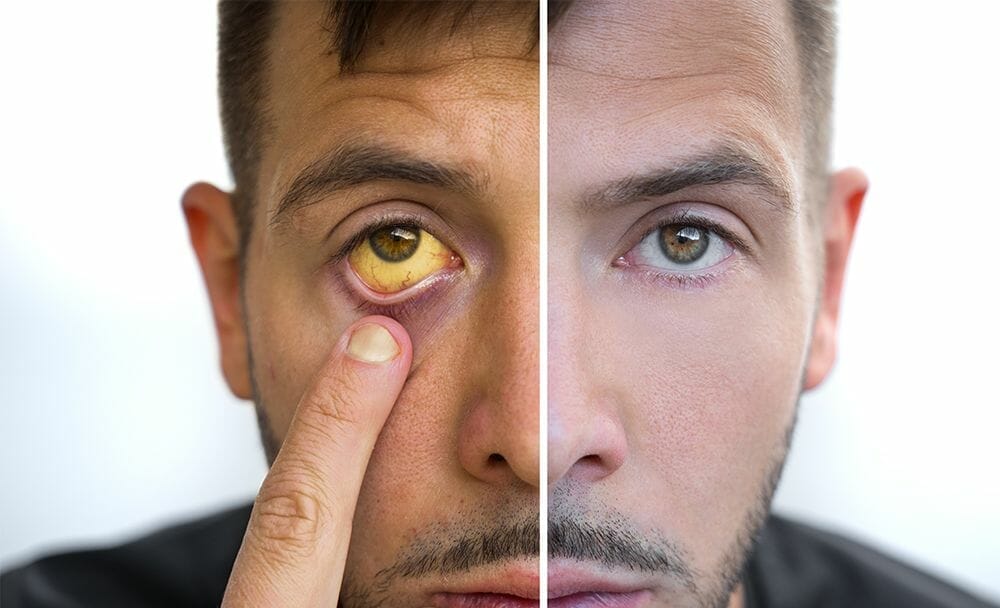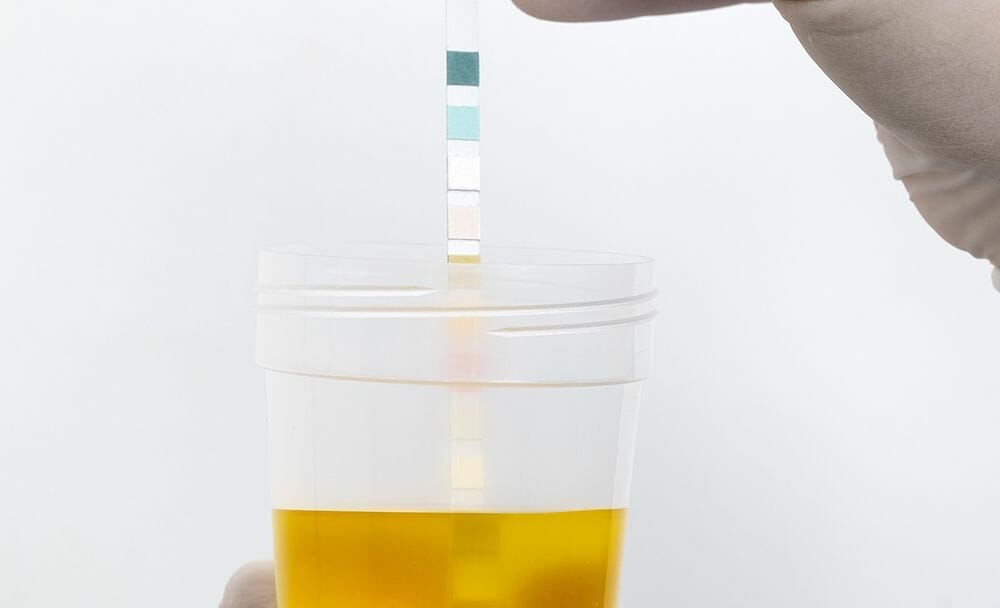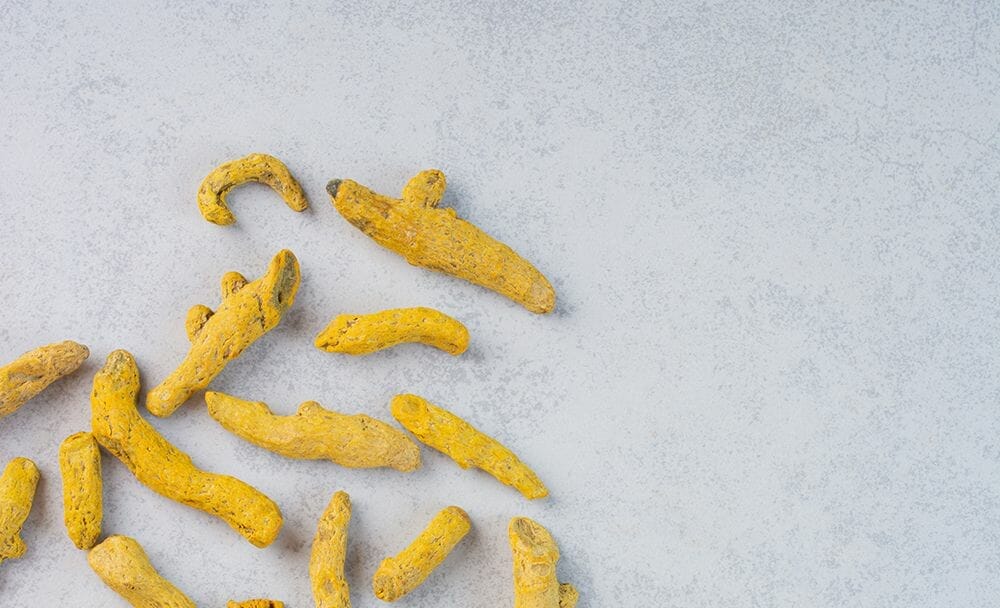
When it comes to medical diagnostics, few assessments hold as much significance as the bilirubin test. This unassuming analysis provides invaluable insights into our liver’s functioning and health. Understanding the implications of your bilirubin levels can be pivotal in maintaining your well-being.
This article delves into the intricacies of the bilirubin test, unveiling the distinctions between normal and high bilirubin ranges in adults. So, if you’ve ever wondered what this test entails or what your results might indicate, join us as we look at the intricacies behind this vital aspect of clinical assessment.
What is bilirubin?
Bilirubin, though it might sound like a complex term, is a crucial substance that plays a pivotal role in our bodies. It’s a yellowish pigment produced during the natural breakdown of red blood cells, a process that occurs continuously as part of our body’s maintenance routine. After these cells have served their purpose and become old, they break down in the liver and spleen.
Bilirubin results from this breakdown, and it needs to be efficiently processed and eliminated from our system to maintain our health. While its creation is a normal part of our bodily functions, understanding its levels is essential, as deviations from the norm can hint at underlying health issues.
What is a bilirubin blood test?
The bilirubin blood test is a fundamental diagnostic tool designed to quantify the bilirubin concentration within your blood. The examination serves as a crucial window into the functionality of your liver, the organ responsible for metabolic tasks. Often integrated into various tests aimed at assessing liver function, the analysis provides invaluable insights.
While a modest presence of bilirubin is part and parcel of the physiological aspect, an elevated level can indicate potential liver issues. Bilirubin, a digestive fluid component of bile, emanates predominantly from the breakdown of aging red blood cells. Under normal circumstances, a proficient liver efficiently eliminates bilirubin. However, deviations from this equilibrium can lead to a build-up of bilirubin levels, potentially signaling an underlying liver disorder. [1]
Why do I need a bilirubin blood test?
Consider the bilirubin blood test your medical compass, guiding you when liver concerns arise. The examination becomes essential when telltale liver damage or disease signs begin to surface. These symptoms—like yellowing of the skin or eyes (known as jaundice), abdominal discomfort, darkened urine, and unusually pale stool—indicate potential liver irregularities.
Even flu-like symptoms, with their feverish temperatures and chills, can prompt the need for this test. Regular bilirubin level assessments might become part of your medical roadmap if you are on a liver disease treatment.
Interestingly, it’s not just adults who are under the bilirubin microscope. The spotlight also shines on newborns. Many healthy infants experience jaundice, but usually, it’s a benign condition. Yet, the medical community takes no chances, often testing newborns shortly after birth. In some cases, a soaring bilirubin level could cast a shadow over the delicate brain, potentially leading to hearing impairment and developmental hurdles. [1]
Other tests associated with bilirubin blood test
Bilirubin blood test is the first step in a comprehensive medical performance to assess your liver health. Many supporting tests often take the stage when concerns arise about liver function. Blood tests beyond bilirubin measurements help unravel the underlying causes of liver woes.
Urine tests step onto the scene, offering further clues to this condition. To gain a more vivid picture, ultrasound and other imaging scans provide detailed visuals of your abdominal landscape. In some cases, a liver biopsy steps forward. For newborns, alongside the bilirubin test, urine tests may happen. These shed light on potential nuances that influence medical decisions. [1]

What do bilirubin blood test results indicate
Variables like age, gender, personal medical history, and even the specific laboratory conducting the test contribute to the unique nuances of your results. It’s essential to regard these outcomes as puzzle pieces rather than immediate conclusions. The significance of your results becomes clear when put into context by a knowledgeable healthcare provider—someone adept at translating these medical signals into actionable insights for your care.
In the case of adults, a typical bilirubin level rests below 1 milligram per deciliter (mg/dL), reflecting a state of equilibrium. However, should jaundice arise, adults may witness a surge beyond 2.5 mg/dL. For newborns, bilirubin levels surpassing 15 mg/dL may warrant attention due to their potential implications. [1]
Things that can affect the bilirubin blood test
A variety of factors can influence the precision of a bilirubin blood test. Medications and herbal supplements can potentially sway bilirubin levels, leading to elevated readings. The situation may further become complex with pregnancy and alcohol consumption.
These elements can incite bilirubin accumulation within the liver, casting a temporary veil over the test results. Understanding these external influences is vital for accurate interpretation. It will ensure the test outcomes reflect the actual state of your health rather than be colored by transient circumstances. [1]
Using Ayurveda to cure liver diseases like jaundice
Ayurveda has garnered attention for its potential role in addressing liver ailments like jaundice. Ayurveda emphasizes a personalized wellness approach encompassing physical, mental, and spiritual well-being. Herbal formulations, dietary recommendations, and lifestyle modifications form the cornerstone of Ayurvedic interventions for liver diseases.
Ingredients like turmeric, aloe vera, and Indian gooseberry are believed to possess hepatoprotective properties, potentially aiding liver function restoration. However, while Ayurveda presents a rich repository of traditional wisdom, its application in contemporary medical practice necessitates consultation with qualified practitioners. [1]

FAQs
1. What is bilirubin’s normal range?
The normal range for bilirubin typically falls below 1 milligram per deciliter (mg/dL) in adults.
2. What is serum bilirubin’s normal range?
The normal range for serum bilirubin, which is the bilirubin present in the blood, is usually below 1 mg/dL.
3. What is the bilirubin test’s average range?
The bilirubin test’s normal range aligns with the typical value of bilirubin in the blood, which is below 1 mg/dL.
4. What is the usual range of bilirubin in adults?
The normal bilirubin range generally hovers below 1 mg/dL in adults.
5. What is serum direct bilirubin’s normal range?
The normal range for serum direct bilirubin, a component of total bilirubin, is typically around 0 to 0.3 mg/dL.
6. What is bilirubin normal range urine?
Under normal circumstances, bilirubin should be minimal to no presence in urine.
Conclusion
The bilirubin test serves as a vital compass, guiding healthcare providers and individuals in deciphering the workings of the liver. From understanding the significance of bilirubin in bodily functions to comprehending the factors that can influence test results, we’ve offered insights to help you engage more actively in health management.
As medical science advances, integrating traditional practices like Ayurveda with contemporary approaches has the potential to enrich our understanding further. Ultimately, the insights from the bilirubin test and allied examinations can help you navigate liver health with greater awareness.
Disclaimer
The information provided here does not intend to replace professional advice or treatment.
References
















